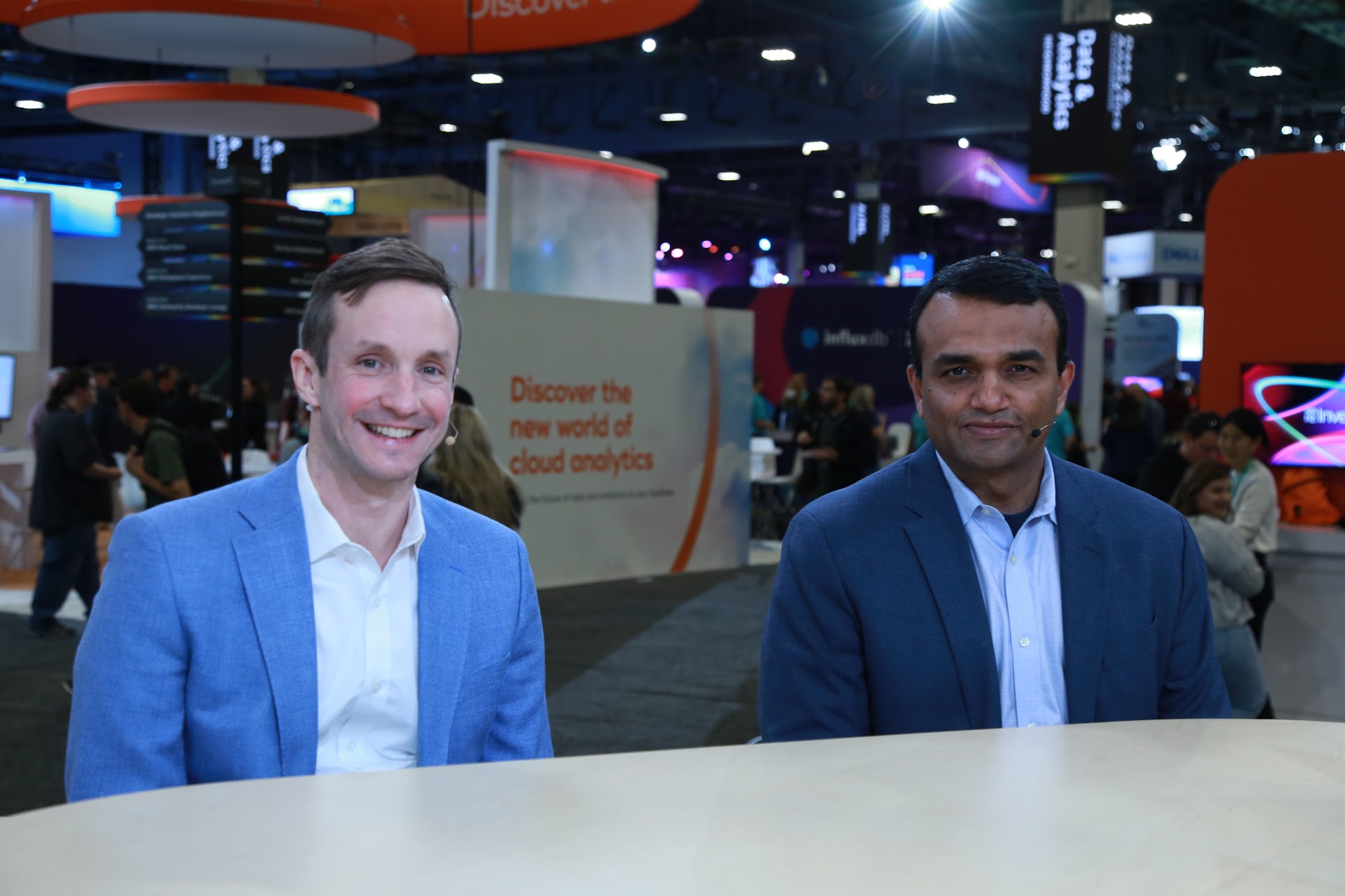With a data mesh, enterprises can revolutionize the way they approach data-based architecture and management.
As data grows in value and brings new ways to generate revenue and insights, businesses are adopting a myriad of data products and solutions to manage the massive amount of data produced.
“Increasingly in today’s world, people are realizing the data will always be decentralized to some degree,” said Justin Borgman (pictured, left), chairman and chief executive officer of Starburst Data Inc. “That notion of bringing everything together into one single database has never been successfully achieved and is probably even further from the truth now, given you’ve got data on-prem and multiple clouds and multiple different systems. Data products and data mesh represent a framework for you to think about data that lives everywhere.”
Borgman and Ashwin Patil (pictured, right), partner and principal at Deloitte Touche Tohmatsu Ltd., spoke with theCUBE industry analysts Lisa Martin and Dave Vellante at the recent AWS re:Invent conference, during an exclusive broadcast on theCUBE, SiliconANGLE Media’s livestreaming studio. They discussed the evolution of data usage, using data products as a bridge, how data can drive revenue and more. (* Disclosure below.)
The evolving use of data
Data products aim to give users a single point of access to manage and access all data available about their business with minimal hassle. Starburst allows users to create a view of data that can span multiple data sources, decoupling where the data lives.
“We’ve gone from having data in too many places to now having data products bring all of that together and drive business decisions faster with more data and more accuracy,” Patil said. “Externally, a lot of that has got to do with how the ecosystems are evolving for data products that use not only company data, but also the ecosystem data that includes customers, that include suppliers and vendors. ”
Starburst’s goal is to make data easily consumable for the average business, without needing a data lake, a data warehouse or an operational database. Starting a digital transformation journey can be overwhelming, especially when absorbing all the elements of data mesh at once.
“As things evolve into industry clouds or ecosystem data, companies start going beyond their four walls in terms of the data that they manage or the data that they use to make decisions,” Patil said. “I think data products are going to play more and more an important part in that construct where you don’t govern all the data that our entities within that ecosystem will govern parts of their data, but that data lives together in the form of data products that are governed somewhat centrally.”
Here’s the complete video interview, part of SiliconANGLE’s and theCUBE’s coverage of AWS re:Invent:
(* Disclosure: Starburst Data Inc. sponsored this segment of theCUBE. Neither Starburst nor other sponsors have editorial control over content on theCUBE or SiliconANGLE.)
Photo: SiliconANGLE
Show your support for our mission by joining our Cube Club and Cube Event Community of experts. Join the community that includes Amazon Web Services and Amazon.com CEO Andy Jassy, Dell Technologies founder and CEO Michael Dell, Intel CEO Pat Gelsinger and many more luminaries and experts.
Source link




